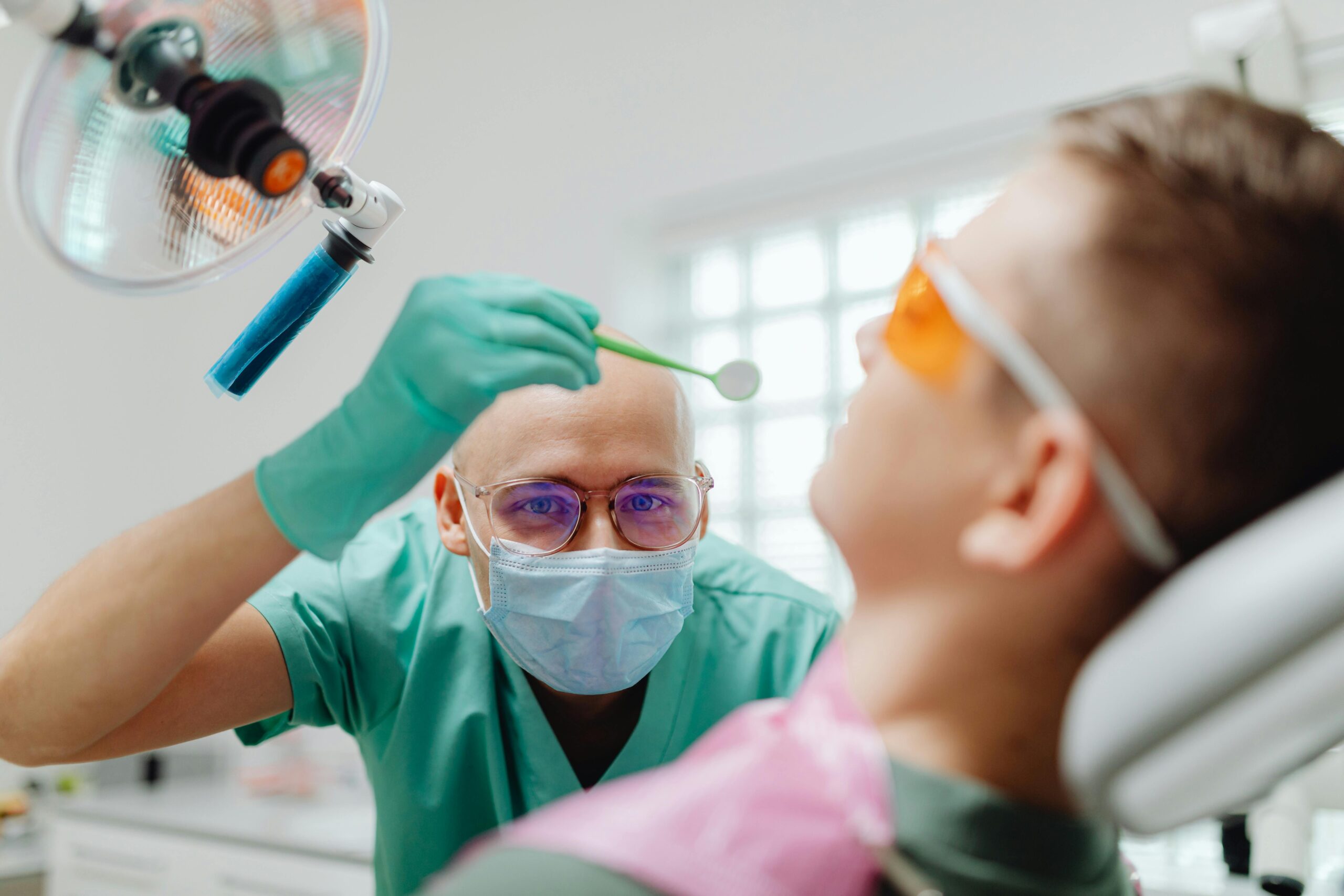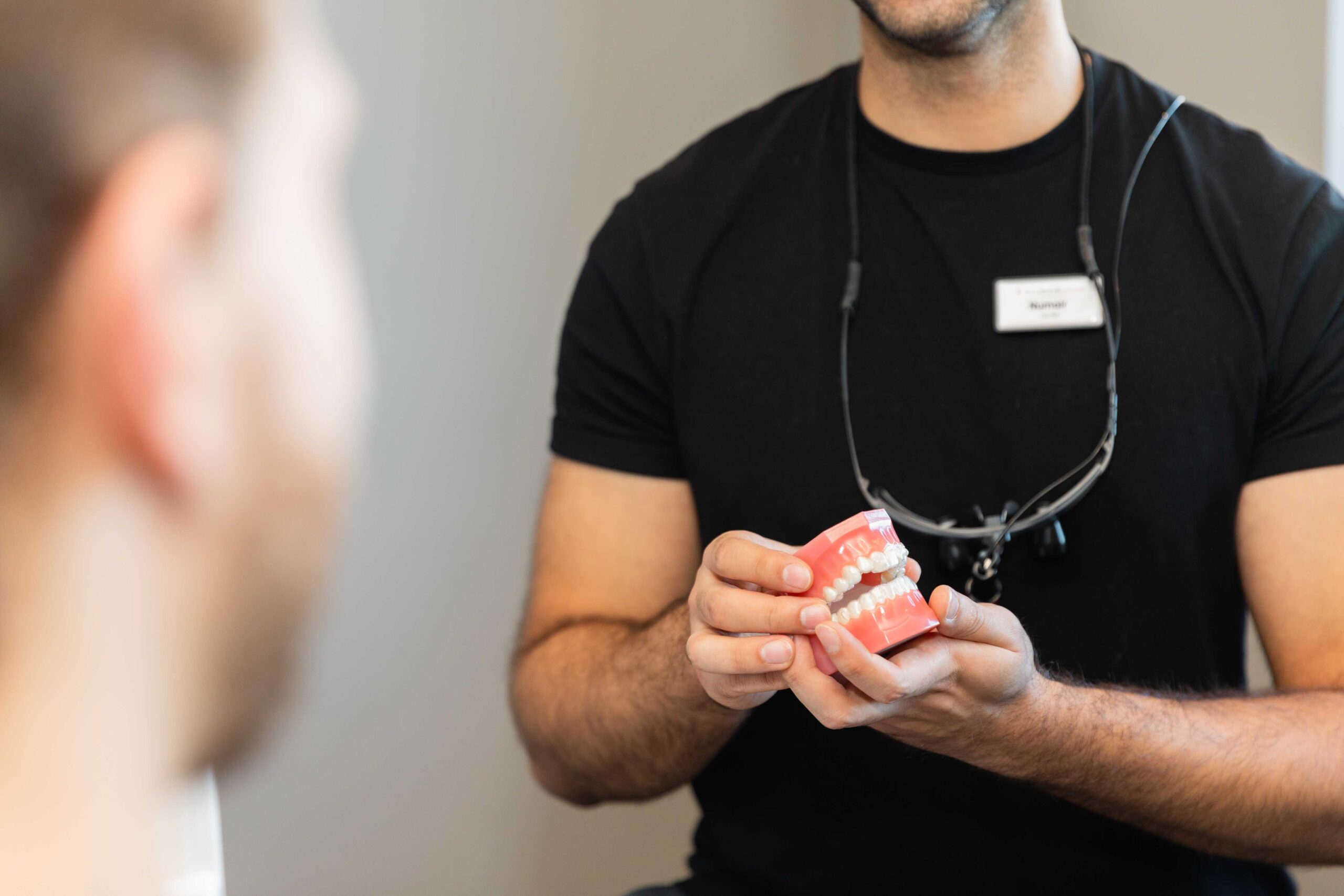Table Of Contents 1 What Is Sedation Dentistry? 2 Why Opt for Sedation Dentistry? 2.1 1. Reduces Dental Anxiety 2.2 2. Allows You to Complete Longer P
How Sedation Dentistry Can Make Your Dental Visits More Comfortable and Relaxing
Visiting the dentist can be a nerve-wracking experience for many people. The sound of the drill, the bright light, the anticipation of discomfort all of these factors can raise anxiety levels to uncomfortable heights. Fortunately, there are modern dental procedures that can help alleviate those worries. One of the most efficient means to change a potentially stressful visit to the dentist into a calm, manageable experience is sedation dentistry. If you are looking for a dentist in Bradford or the best dentist in Bradford, this overview of how sedation dentistry works and why it is utilized may help you feel more confident in making an informed choice when you call for your next visit.
What Is Sedation Dentistry?
Sedation dentistry refers to the utilisation of pharmaceuticals to assist patients in feeling relaxed while at the dentist. This does not mean that you will be completely put to sleep (though there are medical conditions for which that might be an option), but instead sediment dentistry is aimed at reducing anxiety, discomfort, and memory of the treatment, depending on what medication is provided.
There are a few different levels or types of sedation, which dentists frequently utilize in their practice:
- Minimal Sedation – You remain fully awake, but pleasantly relaxed.
- Moderate Sedation (“Conscious Sedation”) – You might slur your speech, may not be fully cognizant of your surroundings, and can respond to stimulation.
- Deep Sedation – You are near unconsciousness, but can still be aroused.
- General Anesthesia – You are totally asleep and unaware, during the procedure.
The level used will be based on your medical history, the complexity of the treatment, and comfort from dental settings.
Why Opt for Sedation Dentistry?
1. Reduces Dental Anxiety
One of the best reasons to use sedation dentistry is to help control anxiety. If you’ve ever been in the dental chair and felt sweaty palms and racing thoughts, sedation can assist in dampening your body’s stress responses. You may feel calm, sleepy, or even unaware of time.
2. Allows You to Complete Longer Procedures in One Visit
Some dental treatments—like full-mouth restorations, multiple crowns, or complex extractions—may take hours. Under sedation, what feels like a long time to you might pass in a blur. This means fewer separate visits and greater convenience.
3. Eases Sensitivity to Pain and Gag Reflexes
Despite using local anaesthetic, some individuals are more sensitive to pain or exhibit a strong gag reflex. Sedation will reduce the sensitivity, which will lead to an easier and more comfortable procedure.
4. Helps with Special Needs or Trauma History
For patients with disabilities, cognitive issues, or who had a bad dental experience, sedation can be essential. Sedation allows dentists to work with increased flexibility while helping the patient to feel safe and ensured.
Sedation Dentistry in Bradford
Residents of Bradford (and the surrounding West Yorkshire area) increasingly look for reliable sedation dentistry options. If you search “sedation dentistry Bradford,” you’ll find that modern practices are now offering advanced sedation services as part of their general and specialist dentistry repertoire.
Choosing a dentist in Bradford with sedation capabilities means:
- They likely have experience handling nervous patients.
- They have protocols in place for monitoring vital signs.
- They are qualified and insured to administer sedation in a dental setting.
- They can offer personalized sedation plans suited to your comfort level.
If your search is “best dentist Bradford,” look specifically for credentials in sedation, patient reviews referencing reduced anxiety, and clear communication about sedation options.
Also Know: How Diet Affects Your Child’s Teeth: Foods to Embrace and Avoid
How Does Sedation Dentistry Work?
Here’s a step-by-step breakdown of how sedation dentistry generally works:
- Initial Dental Assessment
Before any sedation is considered, your dentist will review your full medical history, including medications, allergies, and any prior reactions to sedatives or anaesthetic. - Pre-Sedation Instructions
You may be asked to fast for a few hours prior to your appointment, depending on the sedation level. You’ll also receive instructions about which medications to take or avoid that day.
- Monitoring Set-Up
During the procedure, your vital signs (heart rate, oxygen saturation, blood pressure) will be continuously monitored. This is crucial for your safety. - Administration of Sedation
Depending on the sedation level, medications may be given orally (a tablet), via inhalation (like nitrous oxide, “laughing gas”), or intravenously (IV sedation). - Dental Treatment Begins
While sedated, your dentist will proceed with the planned treatment. You may be partially conscious or deeply sedated. - Recovery Phase
After the procedure, you’ll be closely monitored until you’re safe to leave. Typically, you’ll need someone to drive you home if stronger sedatives were used. - Post-Operative Instructions
You’ll receive instructions on caring for yourself after the procedure — what to eat, medications to take, and when to follow up.
Types of Sedation Used in Dental Clinics
Oral Sedation
An oral sedative (most likely in a pill form) is taken prior to the appointment. Depending on dosage taking, you will probably become very tired but remain aware. The onset takes place gradually, but this will usually create a state of moderate sedation. Most likely, you will not remember parts of the appointment.
IV (Intravenous) Sedation
IV sedation, as the word “IV” indicates, is the medication delivered to the bloodstream. When given this way, the depth of sedation can be closely controlled. You will drift in and out of sleep, but if needed, the dentist is usually able to wake you.
General Anaesthesia (in rare dental settings)
Though this type of sedation is more common with hospital-based dental surgeries as opposed to regular dental clinics. It is designed for the more extensive types of procedures, for a prolonged dental procedure, or for someone with extreme anxiety, etc.
Is Sedation Dentistry Safe?
Safety is the top priority in a dental setting, especially whenever sedation is involved. When administered by a qualified dental professional, sedation is generally very safe. The key factors include:
- Proper patient screening and medical history review.
- Use of appropriate sedation levels based on patient needs.
- Continuous monitoring of vital signs.
- Availability of rescue equipment and emergency protocols.
- Post-procedure supervision until full recovery.
Always ask your dentist about their qualifications in sedation and whether they maintain up-to-date certifications in emergency cardiac life support and airway management.
Learn more: Brighten and Straighten: How Composite Bonding Enhances Your Smile Instantly in Bradford
Who Is a Good Candidate for Sedation Dentistry?
Sedation dentistry can be particularly beneficial for:
- People with severe dental anxiety or phobia
- Patients with low pain threshold or pain sensitivity
- Individuals who experience a strong gag reflex
- Those needing extensive dental work in fewer visits
- Patients with special needs or communication difficulties
- Individuals with a past traumatic experience at the dentist
However, not everyone is a candidate. Some medical conditions (e.g. uncontrolled heart or respiratory disease) or contraindicated medications might limit sedation options. That’s why an individual evaluation is always needed.
Common Misconceptions About Sedation Dentistry
Myth 1: Sedation equates to being “knocked out” completely.
Not necessarily. Many forms of sedation are moderate, meaning you remain responsive and breathable on your own.
Myth 2: You’ll have no memory at all.
While deeper sedation can reduce memory, many patients with minimal or moderate sedation retain partial awareness or recall.
Myth 3: It’s dangerous.
When handled by trained professionals with proper monitoring, sedation is very safe. Oversight, emergency protocols, and patient screening are foundational to safety.
Myth 4: It’s excessively expensive.
While it is true that sedation can add cost to a routine dental appointment, many patients feel the benefits of reduced stress and fewer appointments is worth it. Many clinics can even provide flexible financial plans.
How to Choose a Sedation Dentist in Bradford
When you search for a “dentist in Bradford” or shortlist candidates for “sedation dentistry Bradford,” here are some critical criteria to keep in mind:
- Credentials and Training
Make sure the dentist has formal training in sedation techniques and holds appropriate licences. - Experience with Anxious Patients
Look for reviews or testimonials from patients who mention relief from anxiety or positive sedation experiences. - Safety Protocols
Ask about monitoring equipment, emergency measures, and post-procedure recovery care. - Personalized Sedation Plans
A good clinic won’t apply a one‑size‑fits‑all approach; they should tailor the sedation level according to your medical history and comfort. - Transparent Pricing
You should receive a clear breakdown of sedation costs (preparation, medication, supervision) before committing. - Comfortable Environment
A calming clinic atmosphere, friendly staff, and patient‑centred communication often accompany better sedation dentistry experiences.
By combining “best dentist Bradford” with these criteria, you increase your chances of finding a practice that truly meets your needs.
What to Expect During Your First Sedation Dental Appointment
If you’ve never undergone sedation dentistry before, here’s what the first appointment might feel like:
- Pre‑Visit Discussion: The dentist or sedation coordinator will review your medical history, concerns, and what you want from treatment.
- Pre‑Medications/Fasting: You will receive specific instructions prior to your appointment, such as if you will eat or drink something before coming in.
- Administration of Sedative: Once you have taken the medication, or are administered IV or nitrous oxide, you should begin feeling relaxed within minutes.
- During the Procedure: You may feel drowsy, a little out of it, or pleasantly separated from what is happening while your dental work is completed.
- Recovery Time: After the treatment has been completed, the staff will keep an eye on you until the sedative wears off. You should also anticipate needing someone to help you get home after the sedation if you are receiving sedation medications.
- Aftercare Instructions: You will receive instructions after the sedation for pain control, eating, and follow up appointments.
Many patients have reported that time feels like it passes quickly, with little to no recollection of discomfort, and even a feeling of surprise on how the experience was not as scary as they anticipated.
Also Read: How Often Should You Really Get a Dental Checkup? Here’s What Dentists Recommend
Benefits of Sedation Dentistry for Long-Term Oral Health
Choosing sedation isn’t just about comfort in the moment. There are longer-term benefits as well:
- Consistent Care: Patients who delay or avoid dental treatment due to anxiety are more likely to accumulate dental problems. Sedation helps break that avoidance cycle.
- More Comprehensive Treatment: Because patients are more relaxed, dentists can perform more thorough work in fewer visits.
- Better Patient‑Dentist Relationship: When the dental experience is easier and less fearful, trust builds, which encourages ongoing preventative care.
- Improved Oral Health Outcomes: Reduced dental anxiety often leads to more routine checkups and hygiene visits, which helps in early detection and management of dental issues.
Risks and Considerations
While sedation dentistry is generally safe, there are a few things to keep in mind:
- Allergic Reactions or Drug Interactions
Always disclose full medical history and medications to your dentist. - Respiratory or Cardiac Effects
That’s why continuous monitoring and emergency equipment are essential. - Residual Drowsiness
Stronger sedation can leave you groggy for hours; don’t plan to drive or work afterward. - Cost Overhead
Sedation adds cost compared to a standard dental visit; check with your clinic about breakdowns and payment plans. - Not Suitable for Everyone
People with certain medical conditions (e.g., uncontrolled blood pressure, severe respiratory disease, some neurological disorders) may not be good candidates for certain sedation levels.
Tips to Make the Most of Sedation Dentistry
- Choose a dentist in Bradford who offers a free consultation to discuss sedation options.
- Write down all your medications, past surgeries, and any reactions to sedatives or anesthetics.
- Arrange for someone to accompany you to and from the appointment if required.
- Ask the clinic what their protocols are in case of emergencies.
- Discuss post‑sedation care and what to expect after the visit.
- Don’t continue vaping, smoking, or consuming alcohol just before a sedated appointment (your dentist will advise you properly).
- Stay relaxed and communicative—tell your dentist your fears so they can better tailor your experience.
Why Eccleshill Dental Is Your Trusted Sedation Dentistry Provider in Bradford
At Eccleshill Dental, our mission is to put patient comfort at the forefront. We understand that dental anxiety is real, and we believe nobody should delay essential dental care simply because of fear or nervousness. That’s why we offer sedation dentistry services tailored to your needs, whether you need mild relaxation or a deeper sedation for complex treatment.
Here’s what sets us apart as a dentist in Bradford and among the best dentists in Bradford:
- Staff has completed additional training and certification specifically in sedation methods.
- Up to date monitoring equipment and safety protocols.
- Sedation methods are personalized for all patients based on their medical history and comfort level.
- Comfortable, inviting environment to ease your mind
- Pricing is clear and explained to every patient.
- Continuous commitment to providing quality and compassionate dental care.
If you have been putting off dental treatment because of fear, discomfort, or anxiety, turn your next visit into a calm, reassuring experience.
Ready to Get Started?
Get in touch with Eccleshill Dental today to book a consultation to discuss how sedation dentistry can help you with comfort, relaxation, and stress-free visits to the dentist. Let us help you reclaim a more healthy, happier smile without anxiety.







